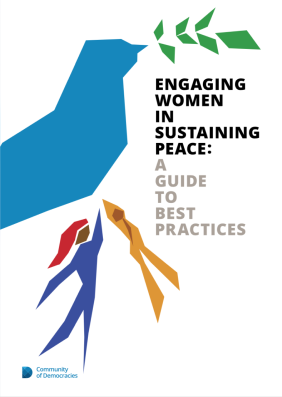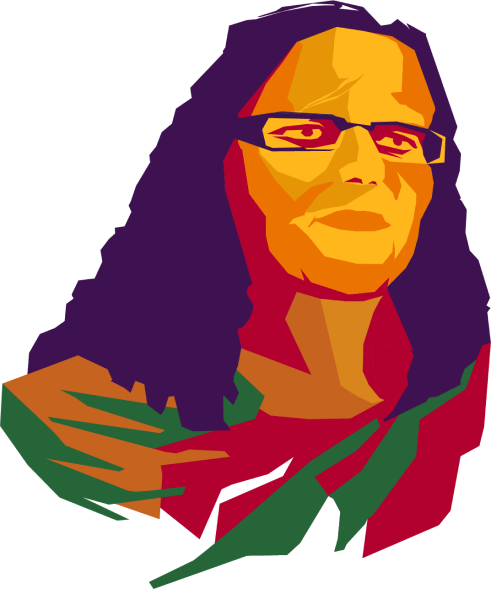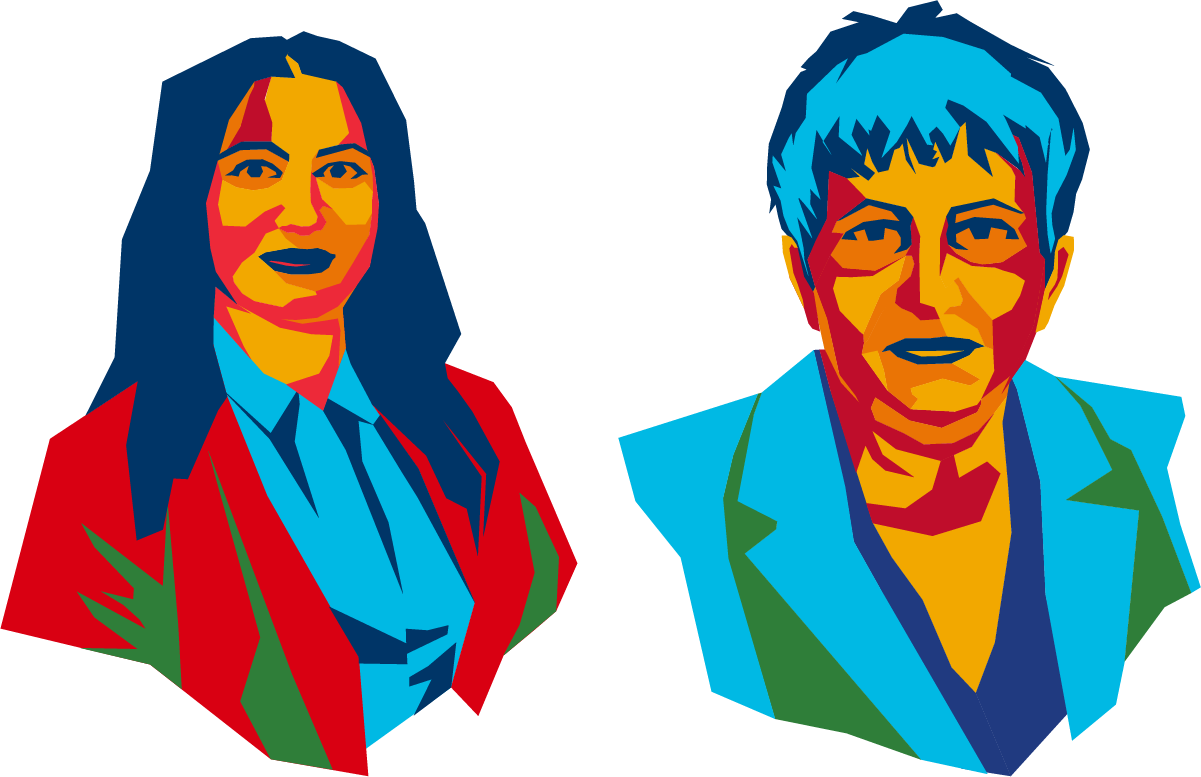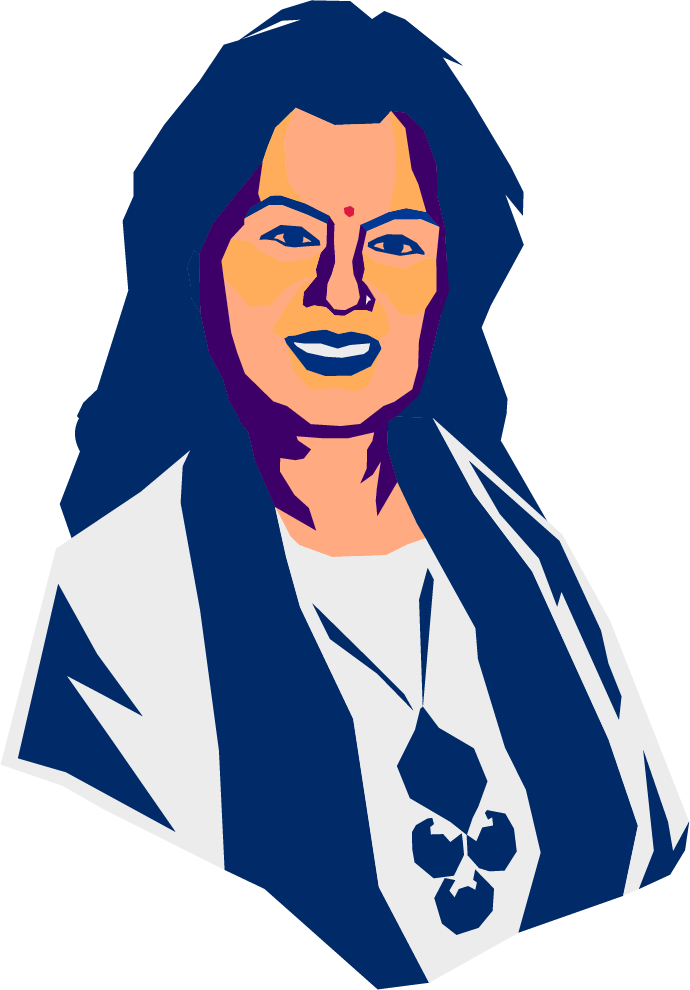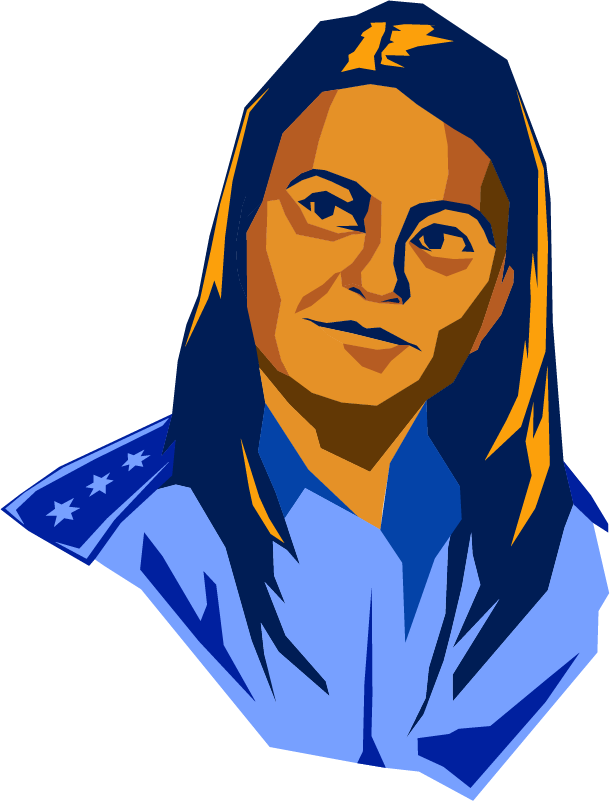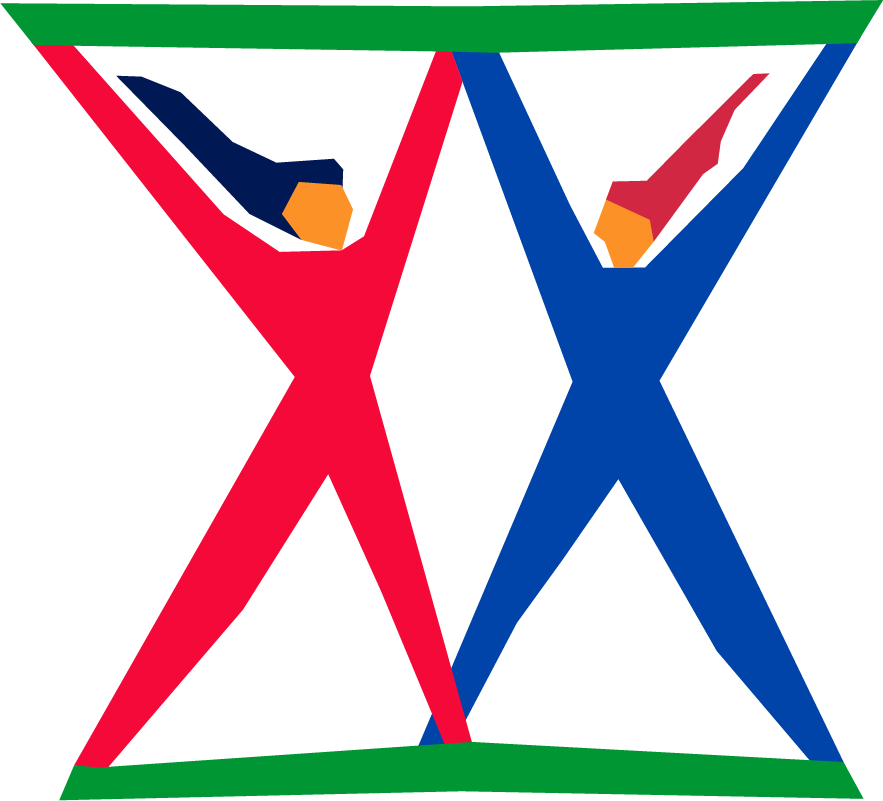The International Association of Women Police selected Chief Superintendent Raluca Domuta Marga from Romania for the 2015 International Police Peacekeeper Award for her service in MINUSTAH, the United Nations Stabilization Mission in Haiti. “Serving in a peacekeeping operation is a remarkable experience that has equipped me with a variety of skills and has allowed me to learn about restoring peace, serving with pride, protecting the vulnerable and learning from diversity,” she said. Chief Superintendent Domuta was chosen as an exceptional and outstanding female police officer who inspired those around her in 2010 after the Haiti earthquake. Despite terrible conditions, she remained an example of leadership during critical search and rescue operations. In the same year, during the cholera outbreak, she was instrumental in providing security and assistance to medical staff. Working closely with the Haiti National Police, Chief Superintendant Domuta supported the gender programme development and contributed to establishing a one-stop centre for victims of Sexual and Gender-based Violence.1https://police.un.org/en/gender-awareness-raising-and-advocacy
Raluca Domuta Marga grew up in a time of change and transition in Romania. While the political system changed, it left behind to her a belief in the importance of a robust education system and multiculturalism.
Her interest in a career in policing was initially inspired by a strong Hungarian television female character who showed that “women can do anything!” While her parents did not encourage her to follow a policing career, Raluca was determined to find a way to join the Romanian Police Force. “As I was preparing for high school, all the military high schools I contacted did not offer girls’ places. So, I went to a general high school, but after I graduated in 1995, being 18 years old, I told my parents that I wanted to go to the police academy.”
A quota system meant that there were 20 reserved places for women. Raluca passed the physical, psychological, and general knowledge tests to be selected from the 2500 prospective candidates. “We had no special measures to protect us because we did not need them. After entering the school, we were treated as police officers. We were busy learning and training, and I never felt I needed special treatment for my protection. It was what I had dreamed of.”
Today there are no quotas for women’s recruitment into the Romanian Police Force, and Marga does not think these are necessary: “I don’t think quotas work. I think that if you are very committed to doing your job, you will do it the way it should be done. Not because women do it a certain way and men another way.”
While this may be the situation at the national level in Romania, achieving gender parity is a top priority for United Nations peacekeeping deployments at the international level. This priority focus is in line with United Nations Security Council Resolution 1325 (2000), which recognizes the importance of women’s participation in United Nations field-based operations, and Resolution 2242 (2015), which calls for the doubling of the number of uniformed women personnel by 2020. The United Nations Police Division has undertaken several measures that have resulted in a noticeable increase in women police officers’ deployment to field missions. Over the last decade, the number of women Individual Police Officers and the number of women police officers embedded in Formed Police Units have tripled.2https://peacekeeping.un.org/en/un-police
Following her graduation, Raluca was a field operative contributing to the special investigation and criminal prosecutions. In 2003, she was selected to join the Organised Crime Unit, focusing on human trafficking: “Trafficking in human beings is a most dangerous crime. A woman can be sold thousands of times. The stories behind the cases are far worse than what you read. I don’t think one lifetime is enough for girls to forget and erase these experiences.”
Romania, Raluca’s country of origin, required her to work across borders to track victims and perpetrators. But numbers, she says, are reducing as a result of campaigns, including in-school educations campaigns that highlight the risks and realities for young women and girls who are often the target of exploitation by building trust and confidence in the police.
While Raluca may not believe in the need for quotas, she does believe in the importance of professional support networks: “I believe more and more it is good to have a sisterhood, a women’s network in policing.” Through such a system, a friend and colleague encouraged Raluca to take the first step to join the United Nations Police. Today United Nations police officers from 78 countries foster international peace and security by supporting countries in conflict, post-conflict, and crises. They reinforce and re-establish security by patrolling communities, advising domestic police services, increasing compliance with international human rights standards, and restoring and promoting public safety and the rule of law.
In November 2009, Raluca Marga was deployed to MINUSTAH, established in 2004 after President Bertrand Aristide departed Haiti for exile in the aftermath of armed conflict. She went from combatting organised crime in Romania to contributing to the full peace continuum and re-establishing the rule of law: “Going into MINUSTAH, I found myself in the situation where the role of the police component was monitoring and mentoring the Haitii National Police to carry out their duties. My role was not to make arrests but to monitor, advise, and ensure that human rights law was followed and respected, and report on violations in the field.”
The MINUSTAH mission3https://www.un.org/en/ga/search/view_doc.asp?symbol=S/RES/1542(2004) a civilian and a military component with the civilian component comprised of Civilian Police, including advisers. There were challenges – it was not easy to transfer knowledge from the Romanian experience to her counterparts in the Haiti National Police. Haitian laws and penal procedures also differed.
“I understood that my mission was not to teach Haitian police how to do policing the Romanian way. I had to take the penal law, read it, learn it to develop a mentoring plan, respect their national laws, and understand they have to follow certain procedures to create a secure environment in their country. As I worked with them, I began to understand their issues and their problems.”
One such problem was the lack of policing infrastructure. Together with the Civilian Affairs Unit from the UN, Raluca Marga contributed to developing projects to rebuild the policing infrastructure and capacity in Haiti.
Another challenge was the language barrier and the need to adapt information and communication to French and Creole: “I could not understand why the recruitment for certain missions was not in line with the local language needs. For Haiti, it was French. In the field, the language barrier can damage the mission.”
There is a growing recognition of contributions made by female police officers to United Nations peace operations. By the time Raluca Domuta Marga reached Haiti, she had already come a long way from the girl who watched the television show about the female police officer and imagined herself in her shoes. But she also faced the cultural barriers on the role of women in policing and decision making during the initial phase of her first deployment: “The acceptance of women as police officers was much more difficult in the mission than in my country. I had to prove myself just as capable as my male colleagues to carry out my duties because I had colleagues who came from countries where women are not working or can go to school or follow a career in policing.”
Raluca Marga’s contribution to the MINUSTAH Mission took place in Haiti’s most challenging times, demonstrating how the Women, Peace, and Security agenda is vital in post-conflict and post-disaster situations. The devastating earthquake of 12 January 2010 resulted in more than 220,000 deaths (according to Haitian Government figures), including 96 UN peacekeepers. It delivered a severe blow to the country’s already shaky economy and infrastructure. The Security Council, by Resolution 1908 of 19 January 2010, endorsed the Secretary-General’s recommendation to increase the overall force levels of MINUSTAH to support the immediate recovery, reconstruction, and stability efforts in the country.4https://peacekeeping.un.org/en/mission/minustah
It was a challenging time as the UN and UN personnel were just as affected as the Haiti and local communities: “The Haitian earthquake was the most difficult moment I had in my life. I saw thousands of people dead. I saw people with the bodies of their children in their arms. I thought of my 5-year-old young son. I had a huge feeling of guilt. To die on a mission was a reality. I lost my friends and colleagues in the earthquake. And the UN management team was also badly hit. It took a couple of days, but we were soon on search and rescue duties and provided security to search and rescue teams deployed from other countries to Haiti.”
Security briefings were coordinated, and security teams were deployed with humanitarian actors distributing water, food, clothes, and shelters organised amongst the destruction and chaos. “Another thing that occurred was the Internally Displaced People (IDP) camps, where high levels of sexual exploitation and abuse had to be addressed.” Peacekeeping operations therefore meant organising safety, security, and protection as medical services and supplies needed to reach communities.
There were many attacks on distribution convoys, and Raluca Marga was caught in one episode. “We had to survey and ensure security for three trucks of rice to a distribution point. The loading took five hours during the day. This was dangerous as it was in a crowded area. I felt it made us vulnerable. People were hungry, and they could see us loading the rice. And we were attacked one hour after leaving the distribution centre.”
These experiences for Raluca Marga bring light to how training and deployment should prepare personnel to meet all the challenges. “Deployment and training should now prepare you to deliver on your mission correctly and successfully. You must be ready to face any situation. Earthquakes, disasters, and riots. There must be preparation for any situation.” Counselling, she adds, is essential to support UN personnel to recover from traumas they face in the field: “If you are not healthy, you cannot ensure other people are healthy.”
Subsequently, in Haiti, the UN Police (UNPOL) helped implement protection measures in the camps for those displaced by the 2010 earthquake. They established a Sexual and Gender-based Violence (SGBV) Team that supports the Haitii National Police. A gender curriculum for national police cadets and training on SGBV for police investigators was also developed.5https://news.un.org/en/story/2013/03/433842
Following the completion of Presidential elections in 2011, MINUSTAH worked to fulfil its original mandate to restore a secure and stable environment, promote the political process, strengthen Haiti’s Government institutions, and rule-of-law-structures well as promote and protect human rights.
By 2012 324 female officers were serving in either UNPOL assignments or Formed Police Units (FPU). Regarding UNPOL officers, 62 out of 151 female officers serve within the Operations, Haitian National Police Development, and Police Commissioner’s Pillars of the UNPOL component. These officers filled 12 percent of positions across a spectrum of 34 different assignments ranging from gender advocates, Reporting Officers, and close protection officers, to name but a few. Female officers also occupy key supervisory positions such as the Team Leader of the Audit and Inspection Unit and serve as the Executive Officers in the Chief of Staff and Police Commissioner’s office. Female UNPOL officers also served throughout the different regions in Haiti. The highest concentrations of female UNPOLs served in the West Region, composing 13 percent of total officers, including those working in IDP Camps. Outside the West Region, eight percent of UNPOL officers were female who served in various assignments ranging from Police Monitors to IDP Camp Officers and Support Officers. Female UNPOL officers also served in different leadership positions such as Department Chief, Chief of Reporting, Mobile Teams Coordinator, and Permanent Camps Coordinator. Overall, female UNPOLs comprise 11 percent of the officers in all ten regions of Haiti. Another area where female officers made significant contributions to the MINUSTAH is the FPU.6https://reliefweb.int/report/haiti/female-officers-serve-vital-roles
Raluca Marga returned on a second mission between 2014 and 2016.
Marga agrees that it is essential to have women in visible and operational leadership positions. MINUSTAH had two women in leadership positions, the UN Special Representative of the Secretary-General and the Chief of Staff of the Police Component.
“It was important to have someone close to us who understood us and understood our needs and issues. We had a female Chief of Staff of the Police who was a role model for me and was behind establishing the women policing network in MINUSTAH as well as supporting the establishment of the Haitian National Women’s Policing Network. She brought training dedicated to supporting women in leadership, women in peacekeeping, and encouraged women to apply for leadership positions.”
And in 2015, for International Women’s Day, a special outreach campaign saw female UNPOL and Haitian National Police visit local schools to create awareness amongst young girls about becoming police officers. She says the campaign was an opportunity to share how women can follow a police career and prepare for international leadership roles in peacekeeping missions. “We need more women in policing in the contributing countries to have more women deployed on peacekeeping missions. We must ensure gender mainstreaming at the country level and to have more women in policing now. This is the starting point.”
However, it is also essential to support women deployed in peacekeeping missions, have extra support for women who also have children, and be more confident to take up their leadership roles. As she advocates for more women in policing, Raluca Marga is precise in her message that the work is nothing like the television show she watched as a young girl. “Any girl who decides to become a police officer should continue to uphold professional standards at all times. All of us must be good at what we are doing in our country. Because when we are deployed, we need to be a good role model for those whom we are mentoring.”
-
police.un.org
Gender Awareness Raising and Advocacy -
peacekeeping.un.org
UN Police -
un.org
Resolution 1542 (2004) -
peacekeeping.un.org
Minustah -
news.un.org
UN peacekeeping – on the front lines to end violence against women -
reliefweb.int
Female Officers Serve Vital Roles
The story of Raluca Domuta Marga speaks to women’s involvement in economic recovery, a commitment from the UN Secretary General seven-point action plan for gender-responsive peacebuilding (2010). Based on desk research conducted on post-conflict countries across the world, the Community of Democracies’ publication on “Engaging Women in Sustaining Peace: A Guide to Best Practices” distils seven commitments outlined in this action plan and identifies good practices and lessons learned in engaging women in peacebuilding.




 go back: about
go back: about
